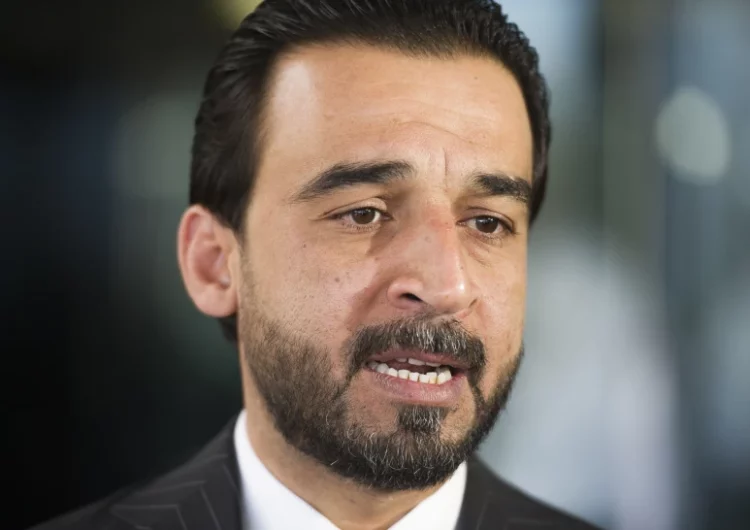
By Exec Edge Editorial Staff
Iran’s interference in Iraq’s internal politics has been pernicious and growing since the fall of Saddam Hussein in 2003. The Council on Foreign Relations writes that Iran has ties to more than a dozen political parties in Iraq. Iran, a predominantly Shia Muslim nation, has worked to fuel sectarian hostility between Shias and Sunnis in Iraq with the overall goal of destabilizing the young democracy, which has managed to share power among Shias, Sunnis and Kurds.
The world witnessed the most brazen act of Iranian interference in years this week when Iraq’s Federal Supreme Court – literally out of nowhere – ousted the Speaker of Iraq’s Parliament, Mohamed Halbousi, the highest-ranking Sunni official in the country, and another Sunni lawmaker.
In a video statement after the court’s decision, Halbousi said: “I am surprised by the issuance of these decisions. I am surprised by the lack of respect for the Constitution.”
Iraq’s Federal Supreme Court has come under fire for its pro-Iranian decisions in the past from groups inside and outside of Iraq. As an example, Iran opposes the expansion of Kurdistan’s representation in Iraq’s parliament, fearing it would come at the expense of Iraq’s pro-Iran parties. Time and again, the Federal Supreme Court has ruled against Kurdistan and for Iran’s interest, the Washington Kurdistan Institute reports. “The fact of the matter is that all the Supreme Court’s rulings line up perfectly with Iran’s interests,” the Institute writes.
It is telling that the Federal Supreme Court of Iraq gave no explanation of its ruling to oust Halbousi. There is no appeal to the ruling, which removes Halbousi from his speakership and from Parliament. In protest of the ruling, three Iraqi government ministers aligned with Halbousi and the Takadum, or Progress, Party resigned. The planning, industry and culture ministers called the Federal Supreme Court’s decision “blatantly unconstitutional” and “clear political targeting,” Reuters reports. The party said it would also boycott meetings of the State Administration Coalition and Takadum lawmakers would boycott parliament. Reuters also reports that critics have charged the Federal Supreme Court with being “widely subject to political influence.”
Halbousi, 42, was first elected to Parliament in 2014. He left to become governor of Iraq’s Western Anbar Province, which is majority Sunni. He returned to the Parliament in 2018 as speaker and was re-elected in 2021. During both his leadership of Anbar and the parliament, Halbousi established a pan-sectarian governing stance, earning a reputation as a lawmaker who could work with all sides. And engineer by training and a businessman by occupation, Halbousi proved during his time as governor of Anbar he could persuade people to work together for the good of Iraq.
Representing the younger generation of leaders in Iraq, Halbousi demonstrated a post-sectarian frustration with the status quo. The shadow of regional conflicts and their impact on the nation’s youth has been profound. He understands that Iraq’s youth are seeking tangible results and not just rhetoric.
“We believe that the cost of understandings and solutions is much less than the cost of disputes and confrontation,” he told Al-Monitor. “Solutions are less expensive, easier to manage, when political feelings are calm.”
Halbousi’s term as governor of Anbar marked a turning point in the province’s history. During his tenure, Anbar witnessed a remarkable resurgence driven by the resilience and determination of its people and the leadership of Halbousi, who was able to rally cooperation in spite of great challenges.
Owing to the conflict Anbar had suffered, the province no longer had an official governor’s office. Instead, Halbousi ran the government from a private home. Adding to the difficulties was a cyclic low in oil prices, crippling Iraq’s budgets. Anbar needed to be rebuilt, but had no resources. Halbousi was able to persuade Anbar businesses to build new infrastructure on the promise of payment when oil prices rebounded. When they did, the contractors were paid. At the same time, the people of Anbar stepped up in extraordinary ways. The United Nations told Halbousi it would take two years for all the wartime rubble to be removed from Anbar. Working on their own, private citizens of Anbar cleared their province in four months.
The international community has taken note of Halbousi’s leadership and Anbar’s remarkable progress. As reported by the Financial Times in 2021, improved security conditions enabled the people of Anbar to rebuild their lives and homes. Both the Iraqi government and international agencies have invested heavily in enhancing the region’s infrastructure, including roads and bridges. Approximately 1.5 million people who were displaced due to conflict have returned to Anbar.
Iran’s malign meddling in Iraq’s politics and domestic affairs has not only dealt a destabilizing blow to a government that was on the right track, but, through Tehran’s manipulation of the Federal Supreme Court, one of Iraq’s most effective leaders has been removed from the field.
Contact:
executives-edge.com
editor@executives-edge.com







